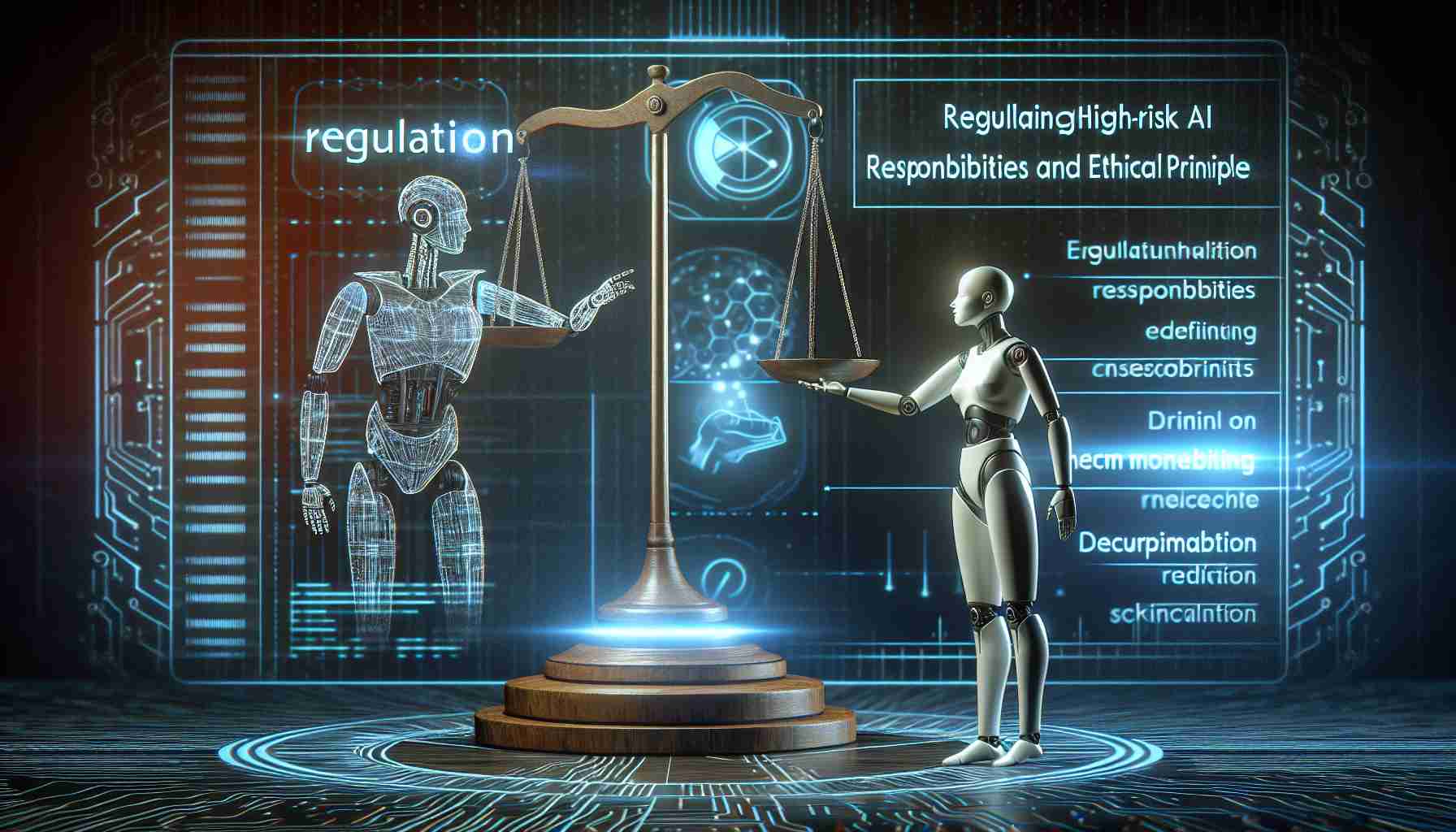The emerging field of artificial intelligence (AI) has brought about immense advancements and opportunities for various industries. However, with these advancements come the need for regulation to ensure the responsible and ethical use of AI. A draft law is being proposed to define what constitutes “high-risk AI” and outline the responsibilities of business operators in the field.
Under the proposed law, high-risk AI will be clearly defined to encompass AI systems and applications that have the potential to cause significant harm or impact on individuals or society. This includes areas such as healthcare, finance, transportation, and public safety. By identifying these high-risk AI scenarios, regulators will be better equipped to establish guidelines and standards for the industry.
One key aspect of the draft law is the delineation of responsibilities for business operators using AI technology. This includes the implementation of risk management measures and the establishment of oversight committees to ensure compliance. These committees will play a crucial role in monitoring the development, deployment, and ongoing operations of AI systems to prevent any negative consequences or misuse.
Additionally, the draft law will address the ethical considerations surrounding AI. Ethical principles will be set forth to guide the development and use of AI in a responsible and beneficial manner. These principles will promote fairness, transparency, privacy, and accountability in AI systems to build trust and safeguard against any potential biases or discriminatory practices.
Ultimately, the proposed regulations aim to strike a balance between fostering innovation and protecting the rights and well-being of individuals and society. By defining high-risk AI, outlining business operator responsibilities, establishing AI committees, and promoting ethical principles, regulators seek to create a framework that enables the continued growth and advancement of AI technology while ensuring its safe and responsible use.
FAQ:
Q: What does the draft law aim to define?
A: The draft law aims to define “high-risk AI”, business operator responsibilities, the composition of AI committees, and ethical principles.
Q: What is the purpose of defining high-risk AI?
A: Defining high-risk AI allows regulators to establish guidelines and standards for the industry, focusing on areas that have the potential to cause significant harm or impact on individuals or society.
Q: What responsibilities will be outlined for business operators?
A: The draft law will delineate responsibilities for business operators using AI technology, including the implementation of risk management measures and the establishment of oversight committees.
Q: Why is addressing ethical considerations important?
A: Addressing ethical considerations is crucial to ensure the responsible and beneficial use of AI. Ethical principles will promote fairness, transparency, privacy, and accountability in AI systems, guarding against biases and discriminatory practices.
Q: What is the objective of the proposed regulations?
A: The proposed regulations aim to foster innovation while protecting the rights and well-being of individuals and society, creating a framework for the safe and responsible use of AI technology.
Sources: Regulation Asia
The field of artificial intelligence (AI) is expected to experience significant growth in the coming years. According to market forecasts, the global AI market size is projected to reach $733.7 billion by 2027, with a compound annual growth rate (CAGR) of 42.2% during the forecast period. This growth is driven by the increasing adoption of AI technologies across various industries, including healthcare, finance, transportation, and public safety.
In healthcare, AI has the potential to revolutionize patient care and improve outcomes. AI-powered diagnostic tools can analyze medical images and data to assist in the early detection of diseases, leading to more accurate diagnoses and personalized treatment plans. The AI market in healthcare is expected to reach $45.2 billion by 2026.
The finance industry has also embraced AI to enhance various functions, such as fraud detection, risk management, and customer service. AI algorithms can analyze large volumes of financial data to identify patterns and anomalies, helping financial institutions make informed decisions and mitigate risks. The AI market in finance is predicted to reach $7.9 billion by 2026.
In transportation, AI is transforming the way we travel. With the development of autonomous vehicles, AI technologies are being used to improve road safety and optimize traffic flow. AI-powered navigation systems can analyze real-time data to provide accurate route recommendations and reduce congestion. The AI market in transportation is estimated to reach $3.5 billion by 2026.
However, alongside the opportunities AI presents, there are also significant challenges and issues that need to be addressed. One of the key concerns is the potential impact on jobs. Automation driven by AI technologies could lead to job displacement, particularly in industries where repetitive and routine tasks can be easily automated. It is crucial for policymakers and industry stakeholders to develop strategies to reskill and upskill the workforce to adapt to the changing job landscape.
Another issue is the ethical implications of AI. As AI systems become more intelligent, there is a growing need to ensure fairness, transparency, and accountability in their decision-making processes. The use of biased or discriminatory algorithms could have serious consequences, such as perpetuating existing social inequalities. It is important for regulators to establish guidelines and standards that promote ethical practices in the development and use of AI technologies.
To stay updated on the latest developments in the AI industry and related regulations, you can refer to reputable sources such as the Artificial Intelligence section on the World Economic Forum’s website or the AI Ethics section on the IEEE (Institute of Electrical and Electronics Engineers) website.
Overall, the emerging field of AI offers immense potential for various industries, but it is essential to navigate this technology responsibly and ethically. With the proposed regulations and ongoing efforts to address industry challenges, stakeholders aim to create a framework that fosters innovation while safeguarding the rights and well-being of individuals and society.

